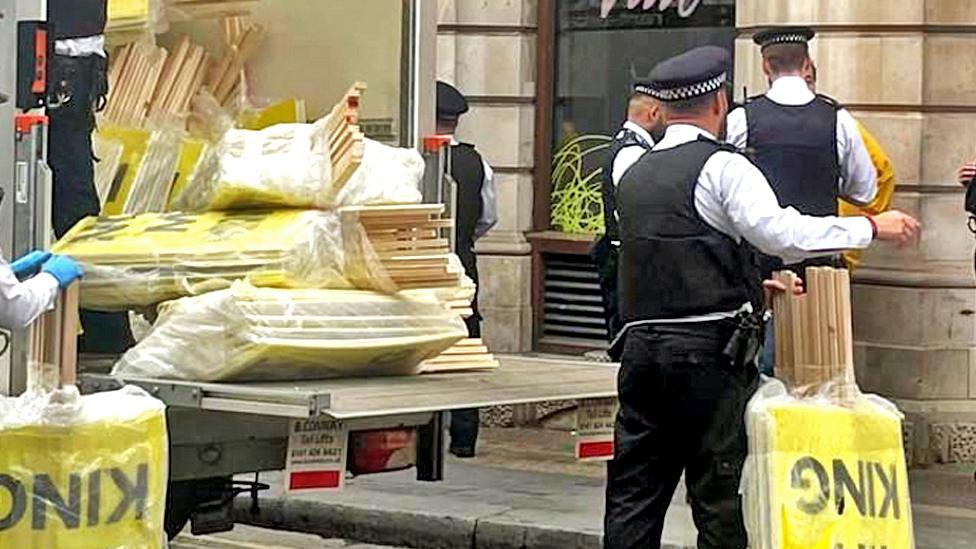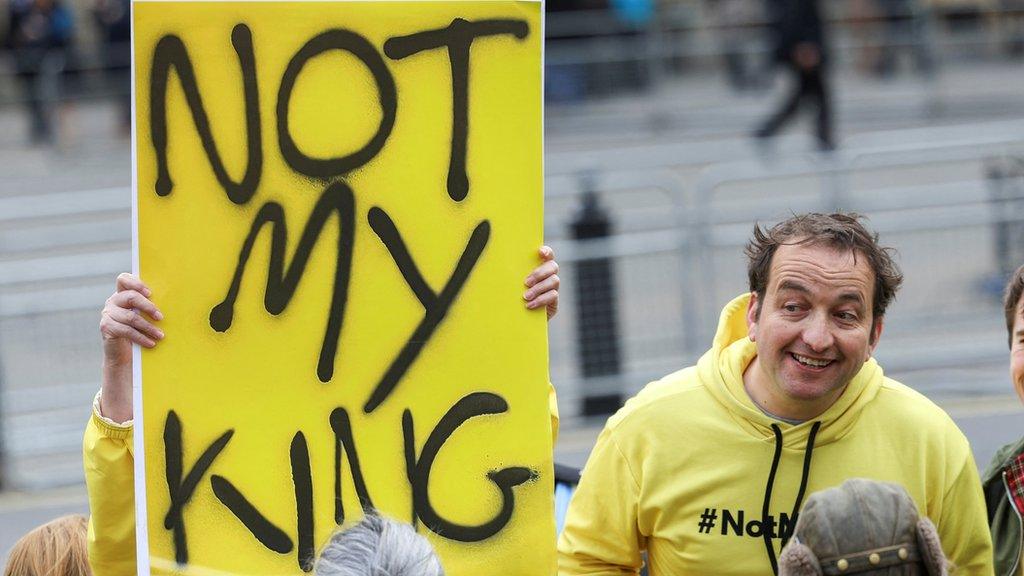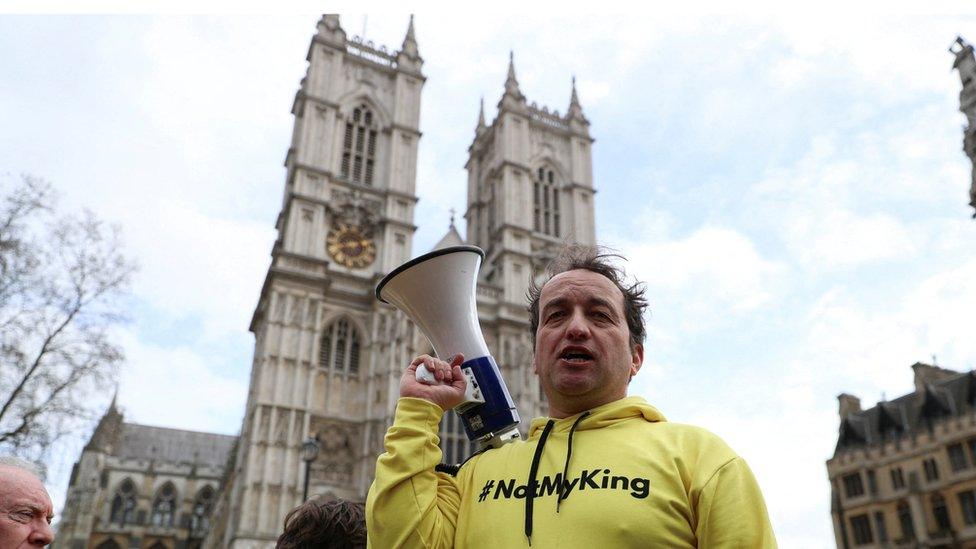King's Coronation: 21 people arrested face no further action, Met says
- Published

Some protesters waved placards saying "Not My King" during the procession
Some 21 people who were arrested at the King's Coronation will face no further action, the Met Police has said.
The force said prosecutors had decided not to charge those arrested in the Mall and Whitehall in London on 6 May.
The police, who were criticised by some for their response, said arrests were made over public nuisance threats and to prevent a breach of the peace.
Assistant Commissioner Matt Twist said there were "real concerns" over security at the event.
He said the force had "intelligence" in the hours before the Coronation to suggest that activists planned to disrupt the procession.
"We had real concerns that such efforts would not only disrupt a once-in-a-lifetime event of enormous national significance, but that they could also compromise the security and safety of participants and the wider public," he said.
"Officers were briefed on these concerns and we needed to be proactive in managing this risk and prevent any activity that could put public safety or the security of the event at risk."
He added that three of those arrested but not charged were found near the procession route in the early hours of the day of the Coronation.
They were carrying glue, a banner from a known activist group, Allen keys and other paraphernalia that "could have been used to commit criminal damage or other disruption".
Prosecutors decided to take no further action after concluding there was "no realistic prospect of conviction", the Met added.
Police were given extra powers shortly before the Coronation under a controversial new law, the Public Order Act 2023.
The King's Coronation drew tens of thousands of people to central London, including some from anti-monarchy groups.
In the aftermath, human rights groups called the arrest of anti-monarchy protesters "alarming".
In all, eight members of Republic, a group campaigning for a democratically-elected head of state, were arrested through the day.
Its chief executive Graham Smith and five others were held on suspicion of going equipped to "lock on" - a tactic some protesters use to make themselves difficult to move. They had been carrying luggage straps which they said were needed to hold their placards together.
Mr Smith, who was held for more than 14 hours, said he had discussed the planned demonstration for four months with senior Met staff.
"The comments made by Matt Twist are disingenuous," he told the BBC.
"They need to stop suggesting it was a once-in-a-lifetime event [to] justify heavy-handed policing. It was also a once-in-a-lifetime event for the protesters."
Last month, Mr Smith announced he was taking legal action against the Met, claiming there was no justification for his arrest.
The Met has previously expressed "regret" over the arrests.
- Published12 September 2023

- Published9 May 2023
